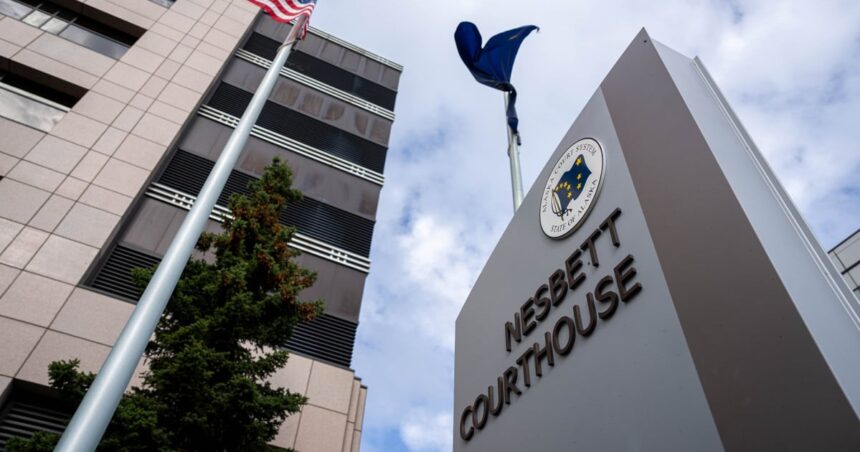This article was produced for ProPublica’s Local Reporting Network in partnership with the Anchorage Daily News. Sign up for Dispatches to get our stories in your inbox every week.
Anchorage Mayor Suzanne LaFrance said this week that the city has hired a full roster of prosecutors and is no longer dropping criminal charges due to short staffing. The announcement comes nine months after the Anchorage Daily News and ProPublica reported the mass dismissals.
“Public safety begins with accountability — and we cannot hold people accountable if we don’t have prosecutors in court,” LaFrance said in a news release, announcing that Alaska’s largest city has filled all “frontline” prosecutor jobs for the first time since 2020. “This was about more than filling positions. It was about rebuilding the systems that keep Anchorage safe.”
An investigation by the newsrooms, published in October, found that city prosecutors dropped hundreds of misdemeanor cases because there weren’t enough attorneys on the payroll. Between May 1 and Oct. 2 of last year, the city dropped more than 250 domestic violence assault cases and more than 270 drunken driving cases due to an inability to meet the 120-day deadline Alaska sets for upholding a defendant’s right to a speedy trial.
Days after the investigation came out, the state of Alaska announced it would help prosecute city cases to avoid speedy-trial dismissals.
But those state prosecutors are no longer needed. According to the city, the municipal prosecutor’s office now has a full staff of 12 “frontline” prosecutors who take cases to trial, plus a supervisor and an attorney who files motions and appeals. The only vacancy, they said, is a supervisory role: deputy municipal prosecutor.
That amounts to a vacancy rate of about 7% in the prosecutor’s office. In contrast, more than 40% of city prosecutor positions were vacant as of mid-2024, according to a city spokesperson.
At a Wednesday “trial call” hearing at downtown Anchorage’s Boney Courthouse, Assistant Municipal Prosecutor Andy Garbe announced the city was ready to go to trial in case after case, including a drunken driving arrest, weapons charges and domestic violence assaults. It was a far different scene from September, when prosecutors were routinely forced to drop charges in cases nearing the speedy-trial deadline.
“We’re not in the position we were last fall,” Garbe said, referring to the forced dismissals. “That’s not happening anymore.”
City prosecutors said they are still dismissing cases for reasons other than speedy-trial deadlines. For example, on Wednesday, Garbe moved to dismiss two cases, including a domestic violence assault, citing factors such as the weakness of the case and unavailable witnesses. A defense attorney had warned the cases were nearing the 120-day speedy-trial deadline, but Garbe said the timing was not the reason for the dismissals.
In Anchorage, city prosecutors handle misdemeanor cases while state attorneys generally prosecute felonies.
With the most serious felonies, the state has long dealt with problems apart from Anchorage’s mass dismissals. The newsrooms reported in January that some of those cases are delayed as long as a decade before reaching trial. In March, the Alaska Supreme Court issued a series of orders aimed at reducing delays.
District Court Judge Brian Clark cited the Supreme Court orders on Wednesday when asking attorneys if they were ready to go to trial, noting the pending deadline.









